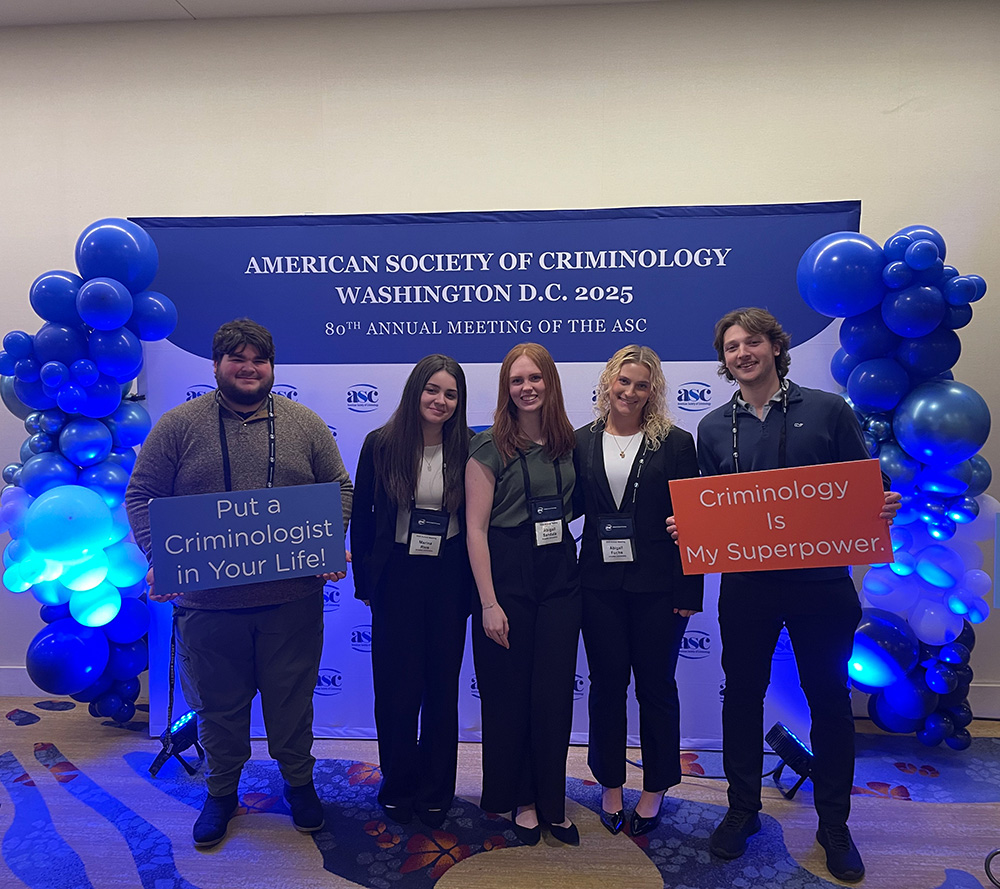Criminology & Criminal Justice Students and Faculty Present Research at American Society of Criminology Conference

Five students from Arcadia University’s Criminology and Criminal Justice program showcased their original research at the American Society of Criminology Conference in Washington, D.C., held November 12–15.
Under the mentorship of Dr. Keisha Robinson, director of the Social Action and Justice Education Fellowship Program; Dr. Jennifer Stanley, assistant professor of Criminology and Criminal Justice; and Dr. Favian Martín, associate professor of Criminology and Criminal Justice, the students presented diverse projects addressing critical issues in justice systems, political conflict, and cultural memory.
- Marina Rios ’26 presented, “Rolling the Dice: The Odds Against Foster Youth in the Juvenile Justice System,” with Robinson;
- Drew Iannucci ’26 shared, “Go Birds: Exploring Philadelphia Police Officers’ Perceptions on Crowd Control Measures After Major Sporting Events,” alongside Martín;
- Abigail Sandala ’26 delivered, “Legacy of Conflict in Belfast: The Troubles and the Politics of Memory,” with Martín;
- Abby Fuchs ’26 discussed “John Brown’s Body: Dark Tourism in Harpers Ferry,” along with Martín;
- Jacob Spina ’26 presented, “Haunting the Colonial Imagination: American Indian Ghost Stories through the Lens of Ghost Criminology,” with Robinson.
In addition to student presentations, Stanley and Martin contributed significant scholarly work to the national conference.
- Stanley co-presented two studies: “MOUD in Drug Courts: Examining Attitudes, Access, and Challenges to Meeting Client Needs,” and “Missing Voices, Missed Opportunities: What Clients Teach Us About Drug Court.”
- Martín co-presented his paper, “That the future may learn from the past: Exploring dark tourism in Colonial Williamsburg,” highlighting intersections of history, memory, and criminology.
“Together, the students’ and faculty’s research underscores the strength of Arcadia’s Criminology and Criminal Justice program and its commitment to producing innovative, socially engaged scholarship that contributes meaningfully to national conversations in the field,” Martín said.

